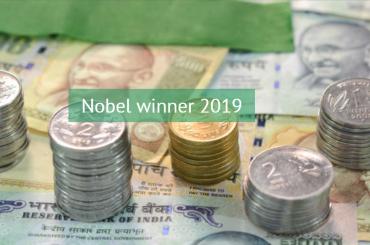

Abhijit Banerjee
Ford Foundation International Professor of Economics, MIT
Abhijit Vinayak Banerjee is the Ford Foundation International Professor of Economics at the Massachusetts Institute of Technology. In 2003 he co-founded the Abdul Latif Jameel Poverty Action Lab (J-PAL) with Esther Duflo and Sendhil Mullainathan, and he remains one of the Lab’s Directors. Banerjee is a past president of the Bureau for Research and Economic Analysis of Development, a Research Associate of the NBER, a CEPR research fellow, International Research Fellow of the Kiel Institute, a fellow of the American Academy of Arts and Sciences and the Econometric Society. He has been a Guggenheim Fellow, an Alfred P. Sloan Fellow and a winner of the Infosys Prize.
Abhijit is the author of a large number of articles and four books, including Poor Economics, which won the Goldman Sachs Business Book of the Year, and Good Economics for Hard Times, both co-authored with Esther Duflo. He is the editor of three more books and has directed two documentary films. Banerjee has served on the U.N. Secretary-General’s High-level Panel of Eminent Persons on the Post-2015 Development Agenda. He is a co-recipient of the 2019 Sveriges Riksbank Prize in Economic Sciences in Memory of Alfred Nobel for his groundbreaking work in development economics research.
Recent work by Abhijit Banerjee
-

Long-term effects of the Targeting the Ultra Poor programme
Ten years later, households targeted by the programme consume more and earn more than control households and enjoy better mental and physical health
Published 18.05.22
-

Food versus vouchers: Evidence from Indonesia
Providing vouchers for rice and eggs allowed for better targeting, increased protein consumption, and was cheaper to administer than in-kind benefits
Published 09.03.22
-

Public disclosure as a political incentive: Evidence from municipal elections in India
Councilors who thought performance reports would be published before an election invested more in infrastructure, with positive impacts on re-election
Published 24.02.21
-

The unintended impacts of formal credit programmes on social networks: Evidence from India
The introduction of financial institutions in communities may generate long-lasting externalities, including losses in informal social linkages
Published 17.02.21
-

What’s wrong with economics?
How can economists better communicate with the wider public to regain the profession’s credibility?
Published 22.06.20
-

When goals get in the way: Imperfect information in job search in South Africa
Reducing transport costs and increasing exposure to the labour market leads to job seekers improving targeting in the job search
Published 10.04.20
-

Can microfinance unlock the poverty trap for some entrepreneurs?
Microfinance has potentially transformative impacts for some entrepreneurs, especially those who otherwise would be stuck in a poverty trap
Published 27.03.20
-

The challenges of universal health insurance in Indonesia
A large-scale randomised experiment reveals that temporary health insurance subsidies can improve take-up at no additional cost to the government
Published 25.11.19
-

The economic and political consequences of India’s demonetisation
Despite BJP’s demonetisation policy having some negative economic impacts in India, why did they win the Uttar Pradesh state election?
Published 14.10.19